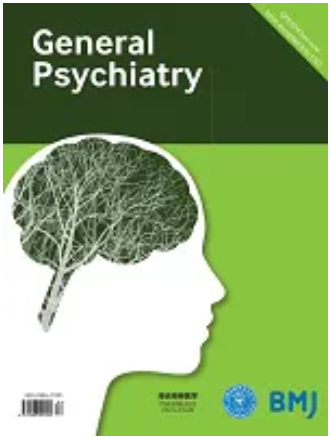探索2022年中国SARS-CoV-2染色体变异爆发的心理影响
IF 5.3
3区 医学
Q1 PSYCHIATRY
引用次数: 0
摘要
2020年2019冠状病毒病(COVID-19)大流行对中国和其他许多国家的心理健康产生了重大影响。34除了COVID-19的直接后果之外,大流行还创造了一种环境,使精神健康的许多决定因素受到影响。与该流行病有关的问题,如失去生计、获得医疗服务的机会有限、社会交往减少和经济衰退,可能对人口的精神健康产生不利影响2021年11月,世界卫生组织(世卫组织)将严重急性呼吸综合征冠状病毒2 (SARS-CoV-2)的新变种变种B.1.1.529指定为令人关注的变种,并将其命名为Omicron;它的迅速变异和传播引起了一个新的全球健康问题中国大陆欧米克隆病毒爆发的第一波始于2020年2月下旬的上海,随后,尽管采取了多方面的公共卫生干预措施,但它在中国几个城市导致了一些小的爆发。在评估了“欧米克隆波”的致病性、免疫逃逸、传播以及可能的后果后,中国国务院于2022.8年12月7日解除了严格的病毒控制措施,官方试图控制疫情的释放迅速迎来了第一波“欧米克隆波”,在一个月内达到顶峰。全国受感染的人数急剧增加。9 10大流行对网民健康的明显影响,强调了对传染病症状流行和心理健康影响的最新信息的需要。不幸的是,未来流行病的威胁仍然存在调查流行病(如Omicron)的影响,并将调查结果纳入卫生系统应对方式,这一点从未像现在这样紧迫。然而,很少有大规模的研究包含重要的证据来解释最近流行病在大范围、广泛…本文章由计算机程序翻译,如有差异,请以英文原文为准。
Exploring the psychological impact of the 2022 SARS-CoV-2 Omicron variant outbreak in China
The impact of the coronavirus disease 2019 (COVID-19) pandemic in 2020 on mental health was substantial in China1 2 and various other countries.3 4 Beyond the direct consequences of COVID-19, the pandemic created an environment in which many determinants of mental health were affected. Issues associated with the pandemic, such as loss of livelihood, limited access to medical services, reduced social interactions, and economic downturn, could potentially have adverse effects on the population’s mental well-being.5 In November 2021, the World Health Organization (WHO) designated the new variant of the severe acute respiratory syndrome coronavirus 2 (SARS-CoV-2), variant B.1.1.529, as a variant of concern and named it Omicron; its rapid mutation and spread raised a new global health concern.6 The first wave of the Omicron outbreak in mainland China started in Shanghai in late February 2022.5 Subsequently, it led to a few small eruptions in several cities in China,7 despite multifaceted public health interventions. After evaluating the pathogenicity, immunity evasion, transmission of the virus, and possible consequences of the Omicron wave, the State Council of China lifted the strict virus control measures on December 7, 2022.8 The official release from attempting to control the epidemic rapidly ushered in the first widespread wave of Omicron, peaking within a month. The number of infected people across the country increased explosively.9 10 The pandemic’s evident impact on netizens’ health emphasised the need for up-to-date information on the prevalence of infectious symptoms and mental health effects. Unfortunately, the threat of future pandemics exists.11 Investigating the impact of epidemics, such as Omicron, and incorporating the findings in ways that inform health system responses has never been more urgent. However, there are few large-scale studies containing significant evidence to explain the effects of recent pandemics in large, widespread …
求助全文
通过发布文献求助,成功后即可免费获取论文全文。
去求助
来源期刊

General Psychiatry
医学-精神病学
CiteScore
21.90
自引率
2.50%
发文量
848
期刊介绍:
General Psychiatry (GPSYCH), an open-access journal established in 1959, has been a pioneer in disseminating leading psychiatry research. Addressing a global audience of psychiatrists and mental health professionals, the journal covers diverse topics and publishes original research, systematic reviews, meta-analyses, forums on topical issues, case reports, research methods in psychiatry, and a distinctive section on 'Biostatistics in Psychiatry'. The scope includes original articles on basic research, clinical research, community-based studies, and ecological studies, encompassing a broad spectrum of psychiatric interests.
 求助内容:
求助内容: 应助结果提醒方式:
应助结果提醒方式:


